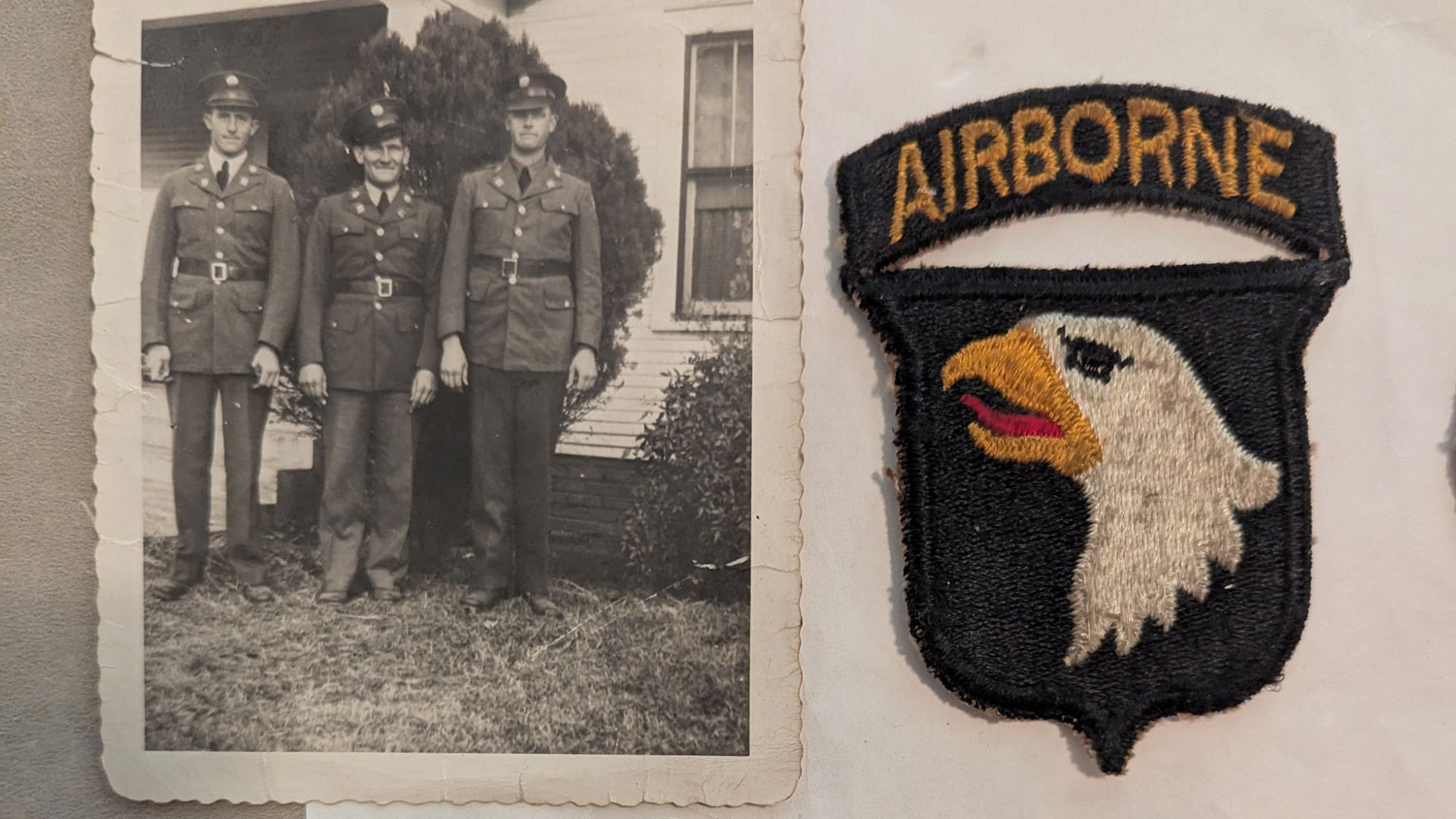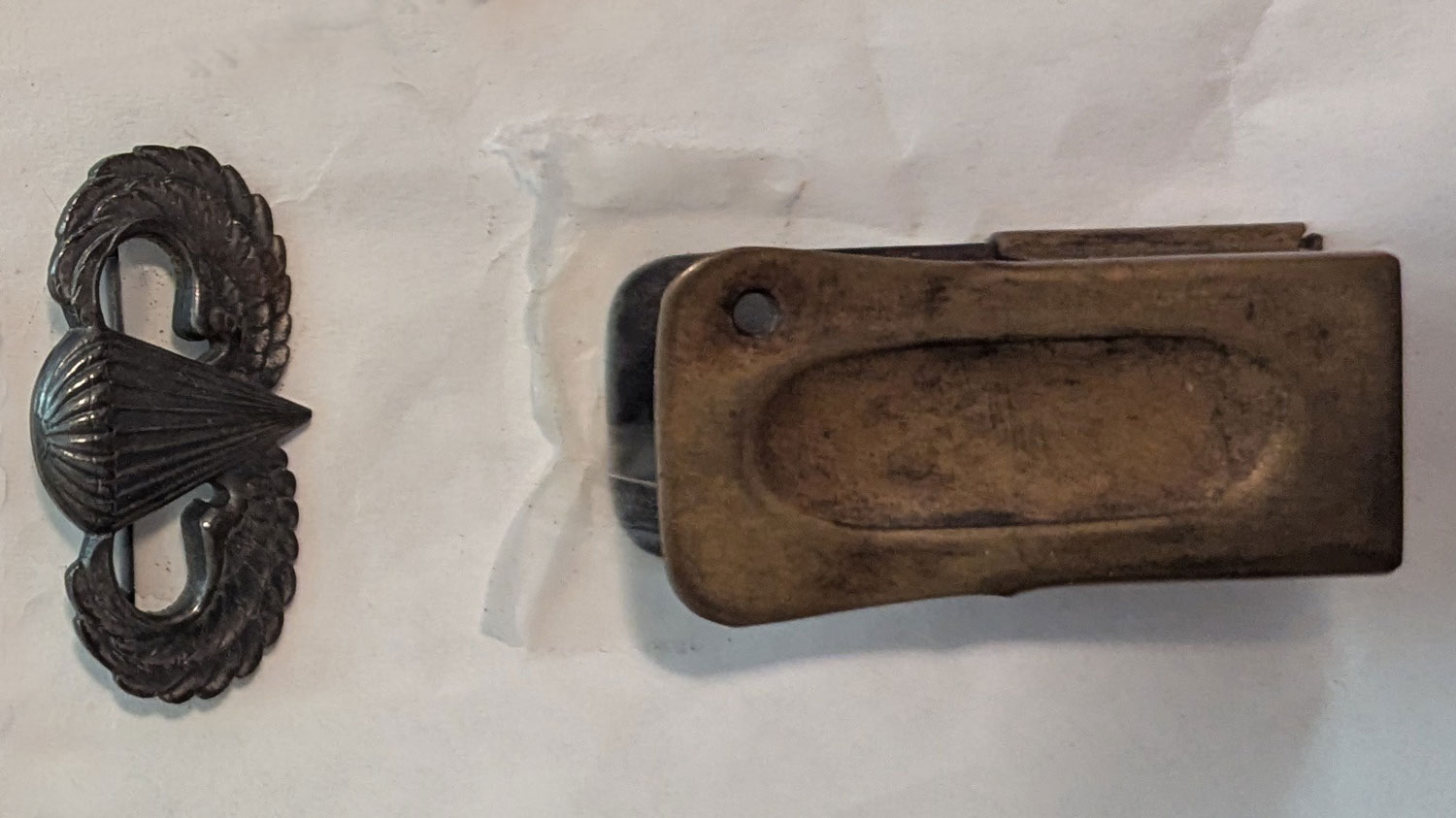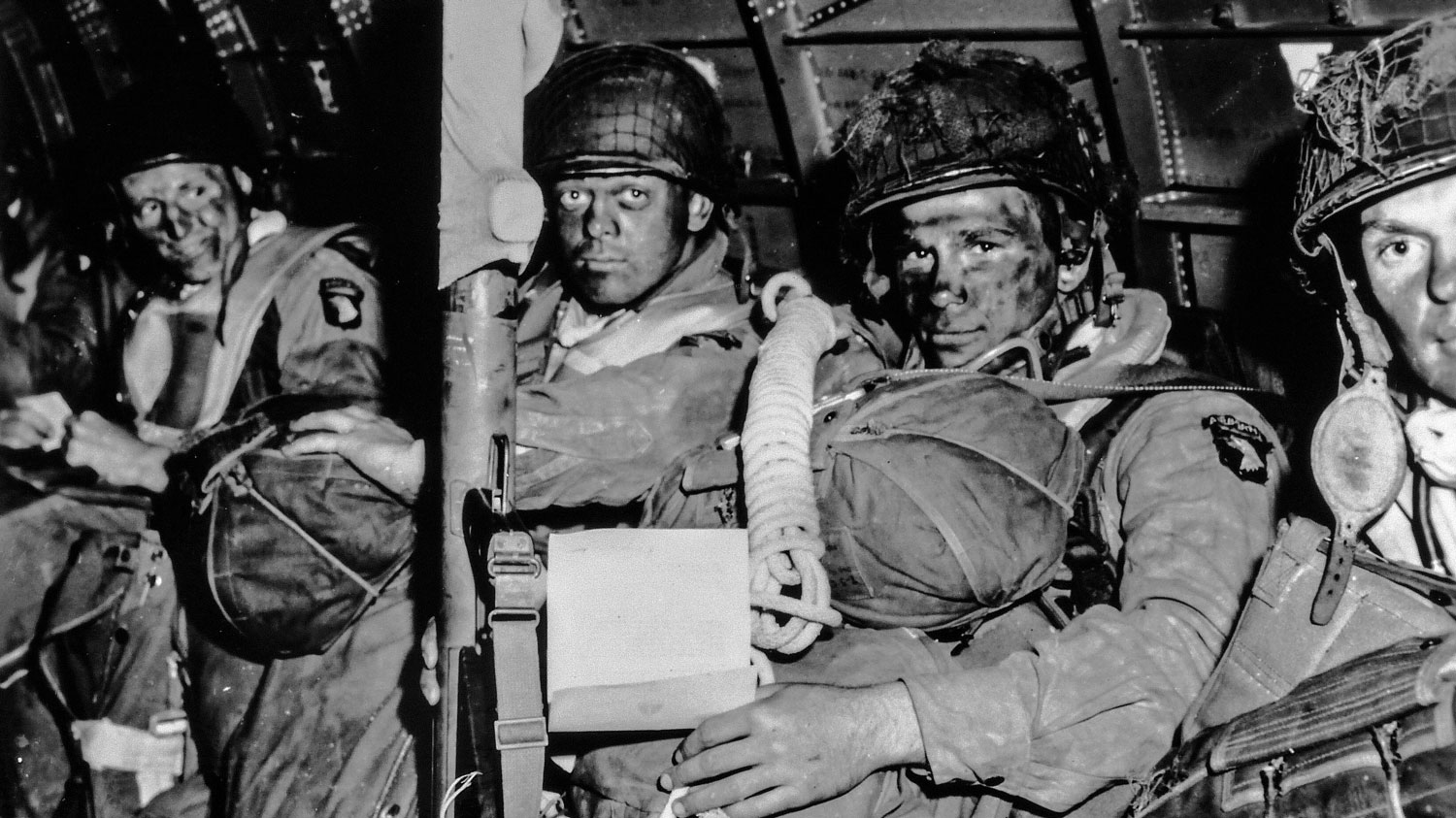
Truck driver or paratrooper? Discovery of D-Day clicker reveals grandfather's true role

A rare original ACME clicker has been discovered in Kansas City, fuelling a British company's mission to find missing pieces of D-Day history and an American family's understanding of what their grandfather really did do during the war.
Birmingham-based ACME Whistles launched a campaign in 2019 appealing for help from veterans and their families to find what are known as The Lost Clickers of the D-Day landings.
Six years after the campaign launched, Nathan, the grandson of Second World War veteran Paul Holler, contacted ACME Whistles after discovering the clicker hidden in his grandfather's attic, where it had remained unnoticed until the family began preparing to sell the house.
Mr Holler had always told his family he was a truck driver in the US Army, but the discovery of the clicker revealed he had joined the 101st Airborne Division's 501st Parachute Infantry Regiment soon after joining up.
Nathan said: "It was not until we discovered this that we found out he was in the 101st Airborne before D-Day and every other battle the 101st is famous for.
"My grandfather never told anyone his role in World War Two, so we were not aware of his role as a parachutist in D-Day until a long time after his death.

"He had some things from his time in World War Two, but he only told people that he drove trucks during the war and although this may have been partially true in the 101st, we now have his parachute qualifying certificate.
"It turns out he did a lot more than just drive trucks. He jumped with the 501st PIR in D-Day and every other 101st major battle is listed in his service record."
Founded in 1870 by brothers Joseph and James Hudson, ACME Whistles had been working with the Royal British Legion in 2019 on a mission to mark the 75th anniversary of the D-Day landings when they launched The Lost Clickers campaign.

The team at ACME Whistles today is still searching for the original clickers which were issued to the 101st as a vital piece of equipment.
Nathan said: "I knew the clicker was special from movies and unique to the 101st, but I wasn't aware of how rare it might be until I came across an article from ACME Whistles looking for them for the anniversary.
"We have his records from the army and his discharge paperwork showing the battles he was in along with post-war memorabilia from cities in Europe celebrating what the 101st did in Belgium.
"War is not something we should glorify, but the sacrifice made by my grandfather's generation should never be forgotten."
What is an ACME clicker?
Also known as cricket clickers, the equipment was issued to members of the 101st Airborne Division as a form of identification within enemy territory during the night of 5/6 June 1944.
The cricket's distinctive clicking sound allowed them to find their comrades without risking exposure to enemy fire.
Their purpose at the time of production was kept top secret.
With a simple spring steel blade, the cricket clicker measured just 48mm in length and would emit a clear "click clack" when pressure was applied.
A fellow paratrooper would positively identify themselves by applying double pressure on their cricket clicker to respond with two "click clacks".
Many replica and fraudulent clickers can be found but ACME Whistles has, in the six years of the campaign, only found three genuine ACME Whistles cricket clickers, before the one found by Nathan.
Simon Topman, managing director at ACME Whistles said: "During World War Two, ACME played a vital role in the war effort by ceasing all commercial operations to serve the British Government in the production of military whistles.
"A few years ago, we launched a campaign to find the lost D-Day clickers that ACME Whistles produced to be used by the 101st American Airborne Division in June 1944.
"Years on from the launch of the campaign, we are overjoyed to reveal that we have located another one of these lost pieces of significant military history across the pond.
"Finding one in America is particularly meaningful, as it represents the return of a piece of equipment that once served with the very soldiers it was made for."
If you believe you're in possession of an original ACME Whistles cricket clicker, please contact ACME Whistles.









